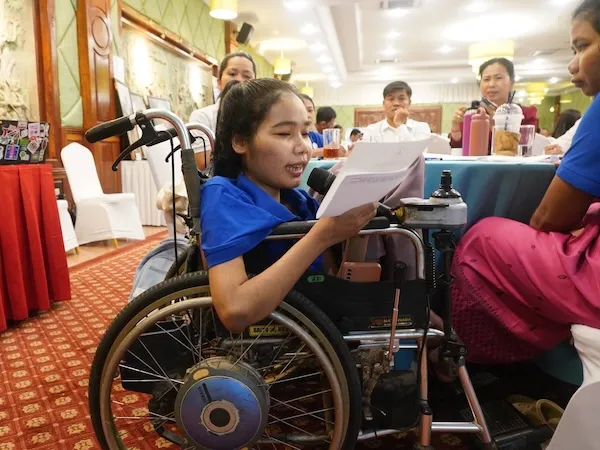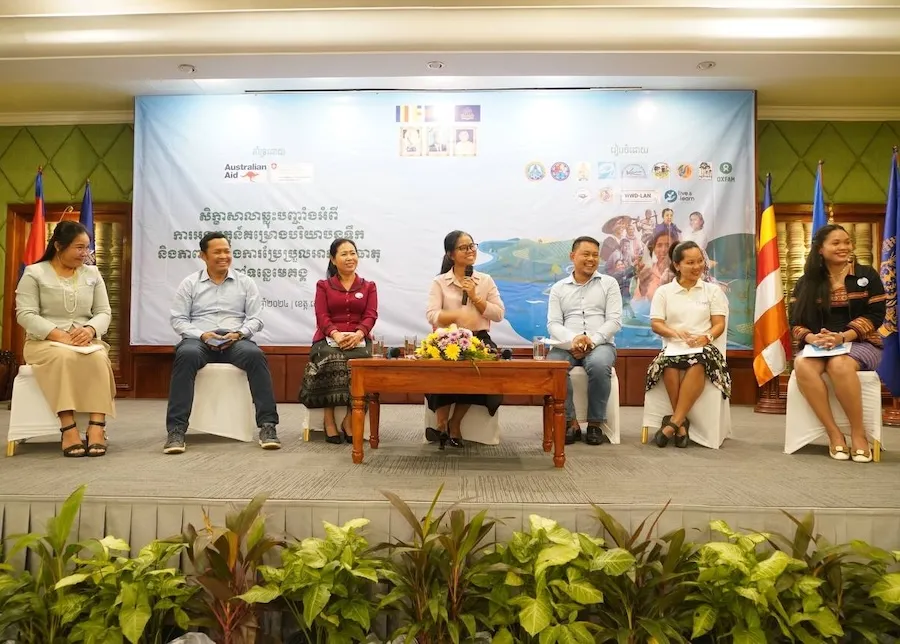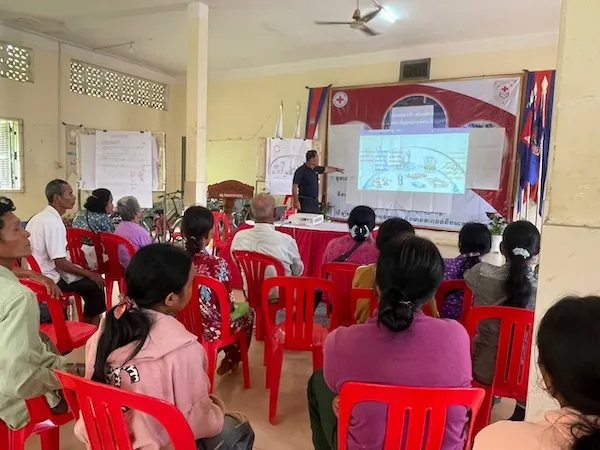Background
In Cambodia, women with disabilities face overlapping barriers related to gender, disability, and poverty. These intersecting factors lead to disproportionate exclusion from decision-making, limited access to resources, and increased vulnerability to violence and climate-related risks (especially in rural and landmine-affected areas).
Recognizing this gap, PAfID launched the Women with Disabilities Leadership and Advocacy Network (WWD-LAN) to strengthen the leadership, advocacy, and visibility of women with disabilities in both public and political arenas.
Cambodia, being one of the most climate-vulnerable countries in Southeast Asia, exposes women with disabilities to higher risks; yet they are often excluded from related policy and planning processes. This project placed women with disabilities at the center of climate action, not only as rights-holders but also as community leaders and contributors to climate resilience and inclusive governance.



What we did
PAfID and the WWD-LAN network implemented a range of actions that strengthened disability-inclusive climate advocacy across national, sub-national, and community levels. The project focused on four strategic priorities:
Advocating for Inclusion in National Climate and Disability Strategies
- Participated in consultations for Cambodia’s Nationally Determined Contributions (NDC 3.0), ensuring the inclusion of disability and gender perspectives.
- Took part in developing the National Disability Strategic Plan (2024–2028) through the Disability Action Council.
- Became a steering committee member of a newly established climate change working group under the NGO Forum.
- Contributed to Cambodia’s position paper for COP29 and participated in related national dialogues.
Engaging Humanitarian Actors
- Successfully advocated for the Cambodian Red Cross (CRC) to integrate disability-inclusive climate action into their disaster risk reduction (DRR) efforts.
- Co-organized inclusive awareness campaigns and training with CRC leaders and provincial governors.
- Enabled the direct participation of 28 persons with disabilities in CRC-led climate actions and institutionalized disability inclusion into CRC’s long-term planning.
Influencing Donor Agendas
- Engaged donors such as DFAT through advocacy dialogues to promote disability-inclusive climate funding.
Strengthening Leadership and Building Networks
- Trained 316 women with disabilities across five provinces on climate change and life skills.
- Supported women leaders’ participation in national forums (e.g., Oxfam panels), and regional events such as a climate conference in Bangkok.
- Facilitated partnerships with local OPDs and the Disability Development Services Program (DDSP) to conduct inclusive training and hazard assessments in rural areas.
- Piloted climate-resilient home gardening in 18 households led by women with disabilities.
Through this initiative, women with disabilities across Cambodia; especially in underserved rural areas; are gaining tools, knowledge, and visibility to lead conversations on climate resilience, social justice, and inclusive governance. The program not only supports individual empowerment but also strengthens national advocacy and cross-sector collaboration, paving the way for systemic change.